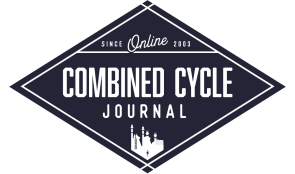Sustainability: Leadership and the triple bottom line
Tenaska Virginia Generating Station
Tenaska Virginia Partners LP
885-MW, gas-fired, 3 × 1 combined cycle located in Scottsville, Va
Plant manager: Robert Mayfield
Key project participants: Sam Graham, maintenance manager Donnie Scott, operations manager
Challenge.
The challenges of the 21st century are requiring powerplants to fundamentally change the way they operate. Issues such as environmental regulations, competitive advantage, smart grid development, and stricter NERC and governmental requirements are hitting powerplants head on and demanding that attention be paid to aspects of the business beyond quarterly financial results.
Solution.
The concept of sustainability addresses all aspects of an organization, including innovation and creativity, where organizations figure out ways for protecting the environment, supporting local issues, and increasing stakeholder engagement, as well as creating a dialog with community partners, suppliers, and customers. The framework to help operate within this sustainability vision is the triple bottom line (TBL) which focuses on people, community, and the environment.
1. Human capital. The facility (TVGS) values human capital because it recognizes that people are assets. The sustainability of the facility’s competitiveness is a renewed effort in how talent is used and leveraged. Learning organizations mitigate future labor and skills shortages in two ways:
- Employees expect organizations to invest in their professional development, thereby enhancing their “employability” within the company or in the job market.
- To address labor and skills shortages, organizations must “grow their own” expertise by providing employees opportunities, both on and off the job, to raise their skill level. TVGS created a succession plan starting with a proactive evaluation of the critical workforce capabilities needed over the next few years.
It incorporated a blended learning methodology consisting of a mix of training elements to achieve a high level of employee training and competency based upon site- and position-specific criteria from the facility’s qualification standards manual.These elements consist of traditional lecture and seminar training, web-based training, on-the-job training, practical-factors demonstration, observed evolutions, systems operations, and performance demonstrations. By sharing industry best practices, TVGS developed a cost-saving program; attained zero personnel safety incidents or personnel lost time; improved environmental performance, operational efficiency, and availability; and developed an ergonomics program.
2. Community. During the holiday season, employees and spouses donate time and money shopping for toys and clothing for at least 80 county children and elderly. The company matches the employees’ monetary donations. Employees continuously donate food to the local food bank. The facility has sponsored quarterly food drives feeding at least 500 guests at a local church. Easter baskets were delivered to 20 children; 15 foster children were given birthday cards and ice cream certificates. An education-facility partnership was established to provide math tutoring, reading, mentoring, science expo judges, sport teams sponsorships, facility tours, spelling bees, career fairs, Commonwealth scholar instructors, and more. During the United Way’s Day of Caring employees painted areas around the local middle school.
3. Eco-environmental. The facility established a steering committee to focus the facility’s sustainability commitment and quantify the impacts on multiple stakeholders. Three years ago, TVGS started to collect and donate used cell phones for the Cell Phones for Soldiers charity. Over 300 cell phones have been donated from within the facility, company, and the community to be exchanged for calling cards to be used by our soldiers overseas.
An eco-environmental program was started to minimize waste to the environment. Aluminum cans and newspapers are collected and donated to local youth groups. Recycled paper is used in the printer, and the printer default setting was changed to print on double-sided paper. Plastic utensils and cups are rarely used, having been replaced with refillable water bottles or porcelain cups. Magazines are read online rather than being delivered to the facility. Junk-mail senders are notified not to send via ground mail. Smart power strips are installed on personal computers and turned off at the end-of-the workday. Office lights are also turned off when not occupied.
Results.
Leadership and the triple bottom line are not awards, accreditations, or certifications you can achieve: it’s an ongoing process that helps us keep on track towards running a greener business, treating people right, and demonstrates to the community at large that we are working for a greater common good.



